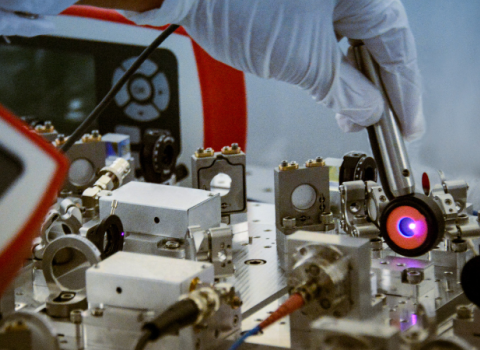The University of Tartu Institute of Computer Science and Cybernetica start collaborating to create new data security solutions that would also protect us in the era of quantum computers. As part of the collaboration, a jointly supervised doctoral student position is established.
In the course of the doctoral studies, new cryptographic algorithms will be created for i‑voting – algorithms that will not be threatened by rapidly developing quantum computers. Although the quantum computers that work based on various physics principles are still in the phase of first working prototypes, first algorithms have already been found where quantum computers have noticeable advantages over conventional, sequential computers. However, without upgrading the current solutions, it is possible that data and, for example, privacy in i-voting can be compromised in the future.
Dan Bogdanov, Head of the Information Security Research Institute at Cybernetica, explained that although currently there are no quantum computers yet that would be able in the near future to break the cryptography used in Estonian e-governance, it is essential to be flexible and ready to upgrade our systems. “This will enable us to ensure long-term data protection in the future, both during the storage, transmission and processing of data. Cybernetica’s technologies like UXP, SplitKey and Sharemind are already moving towards the introduction of post-quantum cryptography, and this cooperation will certainly contribute to this,” Bogdanov said.
“Estonian data security companies are linked with the university through long-term cooperation as their solutions are generally high-tech and directly connected with research results. Examples of this include timestamping, Estonia’s ID-card solution, i-voting system, and companies like Cybernetica, who have found practical solutions to quite a few scientific ideas,” said Jaak Vilo, Head of the Institute of Computer Science. “This collaboration has a great potential to create new solutions in which we can be sure that when introduced, they cannot be broken even by quantum computers,” Vilo added.
The doctoral thesis written in the course of the collaboration will be supervised by Jan Villemson, Senior Researcher of Cybernetica’s Information Security Institute, and Dominique Unruh, Professor of Cryptography at the University of Tartu Institute of Computer Science, who has also received the reputable European Research Council (ERC) grant to create solutions that would protect IT services from quantum computers.
Cybernetica is an Estonian ICT company that has created several secure e-governance solutions, like X-tee secure data exchange layer, the digital identity solution used in Smart-ID, and Estonia’s i-voting system.
The University of Tartu is a highly recognised research university with more than 13,500 students and more than 1,600 members of academic staff. The Institute of Computer Science is a rapidly developing unit with 1,300 students and 70 doctoral students, and about 100 employees. In computer science, the University of Tartu is ranked in the top 200 universities in the world, and the first in Eastern and Central Europe (Times Higher Education Ranking 2021).
Further information:
Jaak Vilo, Professor, Head of Institute of Computer Science, University of Tartu, +372 504 9365, [email protected]
Mari Krusten, Head of Marketing and PR, Cybernetica, +372 524 0742, [email protected]
This article was first published on April 26 by University of Tartu.





 A unique international forum for public research organisations and companies to connect their external engagement with strategic interests around their R&D system.
A unique international forum for public research organisations and companies to connect their external engagement with strategic interests around their R&D system.